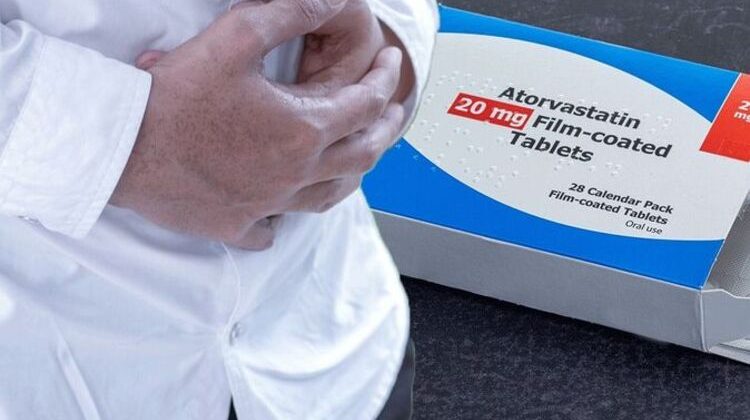Dr Chris: Statins could reduce breast cancer deaths by 40%
We use your sign-up to provide content in ways you’ve consented to and to improve our understanding of you. This may include adverts from us and 3rd parties based on our understanding. You can unsubscribe at any time. More info
HDL stands for high-density lipoprotein; this is the type of cholesterol required for overall cardiovascular health.
The type of cholesterol requiring the prescription of statins is referred to as Low-density lipoprotein, or LDL cholesterol; this forms as a plaque in the arteries increasing blood pressure.
As a result of their respective properties, HDL is often known as good cholesterol while LDL is referred to as bad cholesterol.
Statins help lower levels of bad cholesterol.

In common with other medications, some side effects are possible as a result of their consumption.
These symptoms can impact the body in a number of ways; including how the liver operates.
Statins can cause a condition known as hepatitis that causes the liver to become inflamed.
The condition also causes stomach pain and flu-like symptoms.
Other symptoms hepatitis can elicit are:
• Muscle and joint pain
• A high temperature
• Feeling and being sick
• Feeling unusually tired all the time
• A general sense of feeling unwell
• Loss of appetite
• Tummy pain
• Dark urine
• Pale, grey coloured poo
• Itchy skin
• Jaundice.
While this may sound unnerving hepatitis is an uncommon side effect.

Other side effects of statins include:
• Headache
• Dizziness
• Feeling sick
• Feeling tired or unusually weak
• Constipation
• Diarrhoea
• Indigestion
• Farting
• Muscle pain
• Sleep problems
• Low platelet count.
The full list of side effects will be present on the leaflet accompanying every packet of medication.

Should a side effect occur that isn’t listed, there is an available government avenue to patients affected known as the Yellow Card Scheme.
During the pandemic the Government launched a Covid specific Yellow Card Scheme so members of the public could report issues with Covid related products and medications.
The NHS suggests a number of ways for a person to lower their cholesterol other than through medication including improving their diet, exercising regularly, quitting smoking and cutting down on alcohol.
With regard to exercise a minimum of at least 150 minutes is recommended per week at a moderate intensity.
For more information on these conditions contact the NHS or consult with your GP.
Source: Read Full Article
